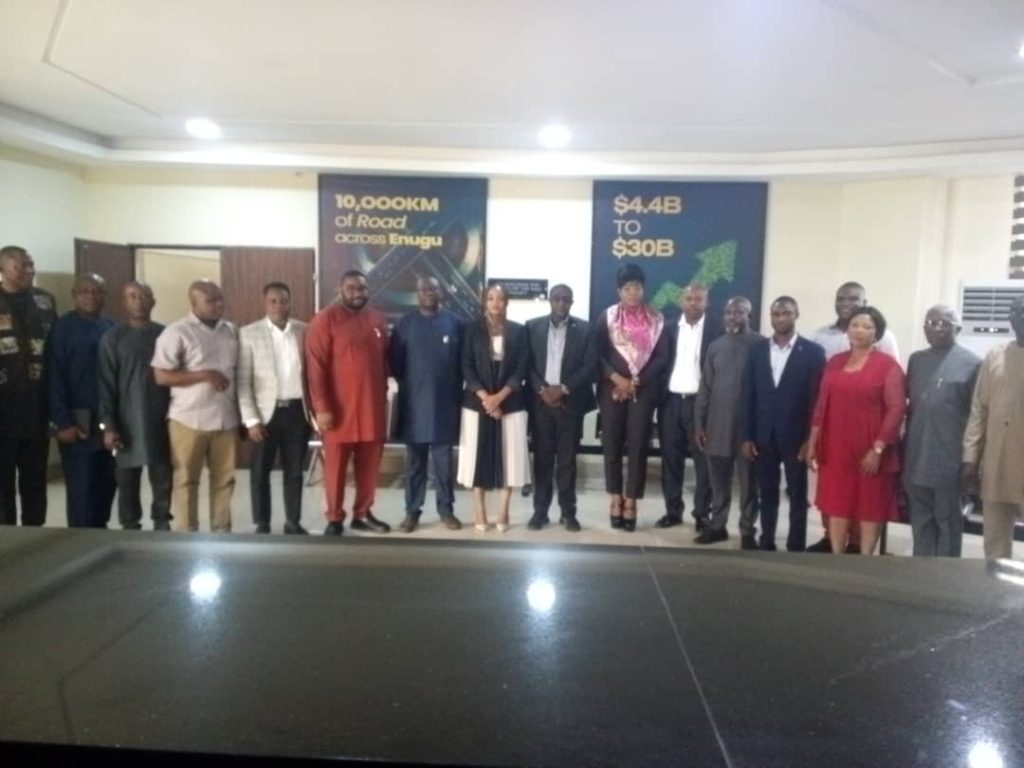Ben Ezechime, Enugu
The African Development Bank (AFDB), has urged the Enugu State Government to redouble its efforts to meet the requirements for the Special Agro-Industrial Processing Zone programme (SAPZ) in Enugu.
Dr Chukwuma Ezedimma, a representative of AFDB, Abidjan Headquarters, made the call when his team and officials of the Federal Ministries of Finance and Agriculture, visited Enugu on Thursday.
The SAPZ Programme goal is aimed at increasing household incomes, foster job creation in rural agricultural communities, especially for youth and women, and enhance food security in Nigeria.
AFDB plays a vital role in financing the programme through the Federal Ministries of Finance and Agriculture.
Speaking to newsmen after visiting the proposed site for the project at Owo in Nkanu East of Enugu State, Ezedimma said the visit was a preparatory mission of the bank for the SAPZ phase two programme.
According to him, we came to Enugu State to assess its readiness in respect to the development of the programme in the state.
“We visited the site and we still need to do more assessment as we are waiting for the feasibility study to be submitted to the bank and Federal Ministry of Finance.
“We are also waiting for environment and social impact assessment to be done and concluded by the state before we can proceed. We had a long meeting today and discussed issues that are relevant to the design of the feasibility study.
“From what we see in the field, the state is ready on the ground but on paper they are not ready. We want to make sure that documentation they want to submit is in line with what they have already on ground which is very critical for us,” he said.
He added that the partnership was between AFDB and Nigeria Government through the Federal Ministry of Finance.
“Enugu State has more things on ground than in paper. The readiness is in evidence we have before us and it is still work in progress,” he stressed.
Dr Louis Enaberue, from the Federal Ministry of Agriculture and Food Security under SAPZ programme, said that the programme was phase two of SAPZ.
Enaberue noted that phase one comprised seven states and FCT, which started two years ago.
He explained that in phase two they would go round 27 states to see how ready they were which would determine if they should go ahead with the project in their various states.
Dr Akande Oyebola, the Assistant Director, African Financial Institutions from the Federal Ministry of Finance, in her part, explained that one of the first criteria to know the state readiness was land which Enugu had shown.
She said: “The land infrastructure we are seeing here is over 1,000 hectares and is more satisfactory while the university beside it will be an added advantage that will place Enugu State in a better position to participate in this programme.”
On the cost infrastructure, “if everything amounts to $10 million dollars, the state was expected to pay 50 per cent of the amount through their counterpart funding while the bank will provide 50 per cent cash.
“We will come back in September for appraisal mission; we expect that everything we require of them is embedded in their documents and it is at this point we will begin to see their readiness in total,” she said.
Responding, the State Commissioner for Agriculture and Agro Industrialization, Mr Patrick Ubru, assured the team that the state was ready as 2.4 kilometers road leading to the site had been done by the state government.
He stressed that the state had done its environmental impact analysis and feasibility study which it would amend in line with the AFDB recommendations before their next visit.
Ubru promised that the SAPZ would be spread across the three Senatorial Zones of the state, adding that apart from rice, cassava and rice they would do other crops that had comparative advantage.
Earlier, the traditional ruler of Mbulu Owo, HRH Godwin Arum, assured the bank and Federal Government of their support in siting the project in their community.
“We have no problem in giving the state government our land as we are aware of the enormous benefits we will get from it,” he explained.

